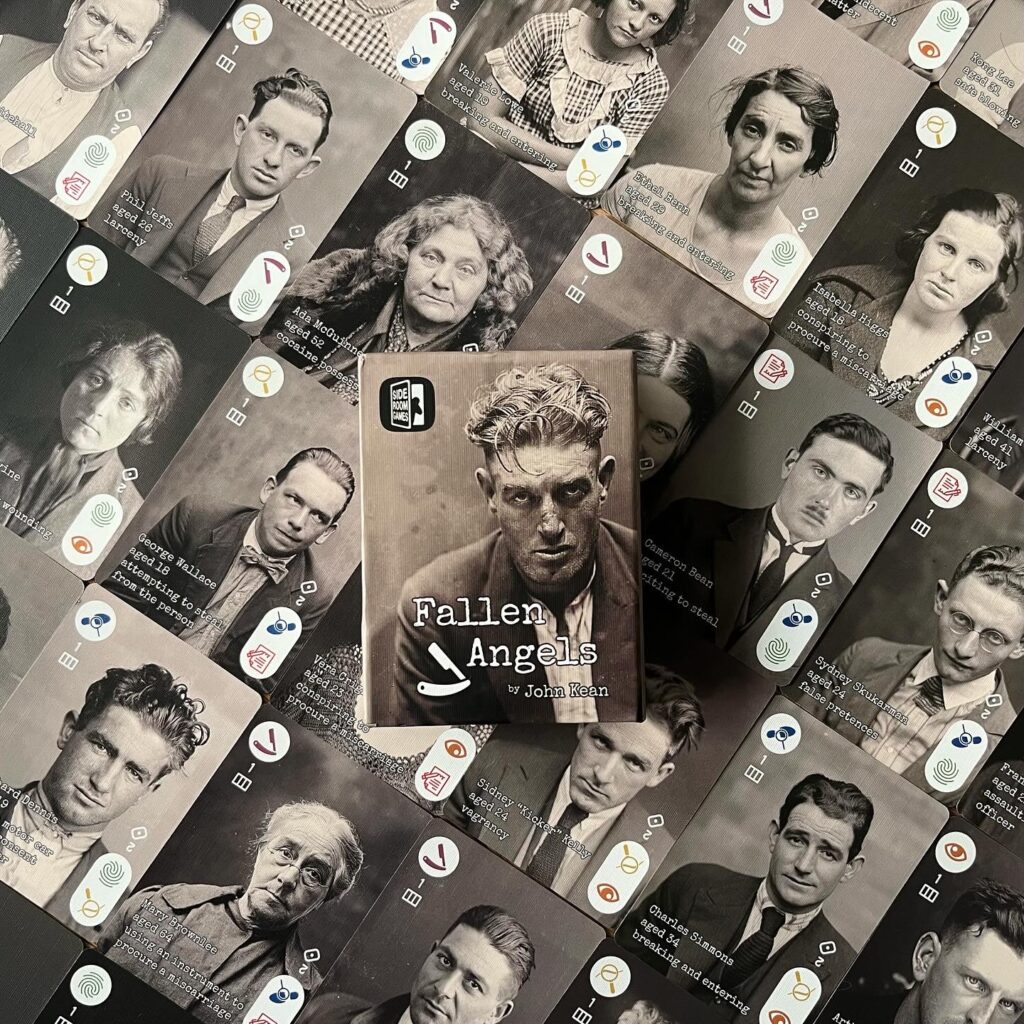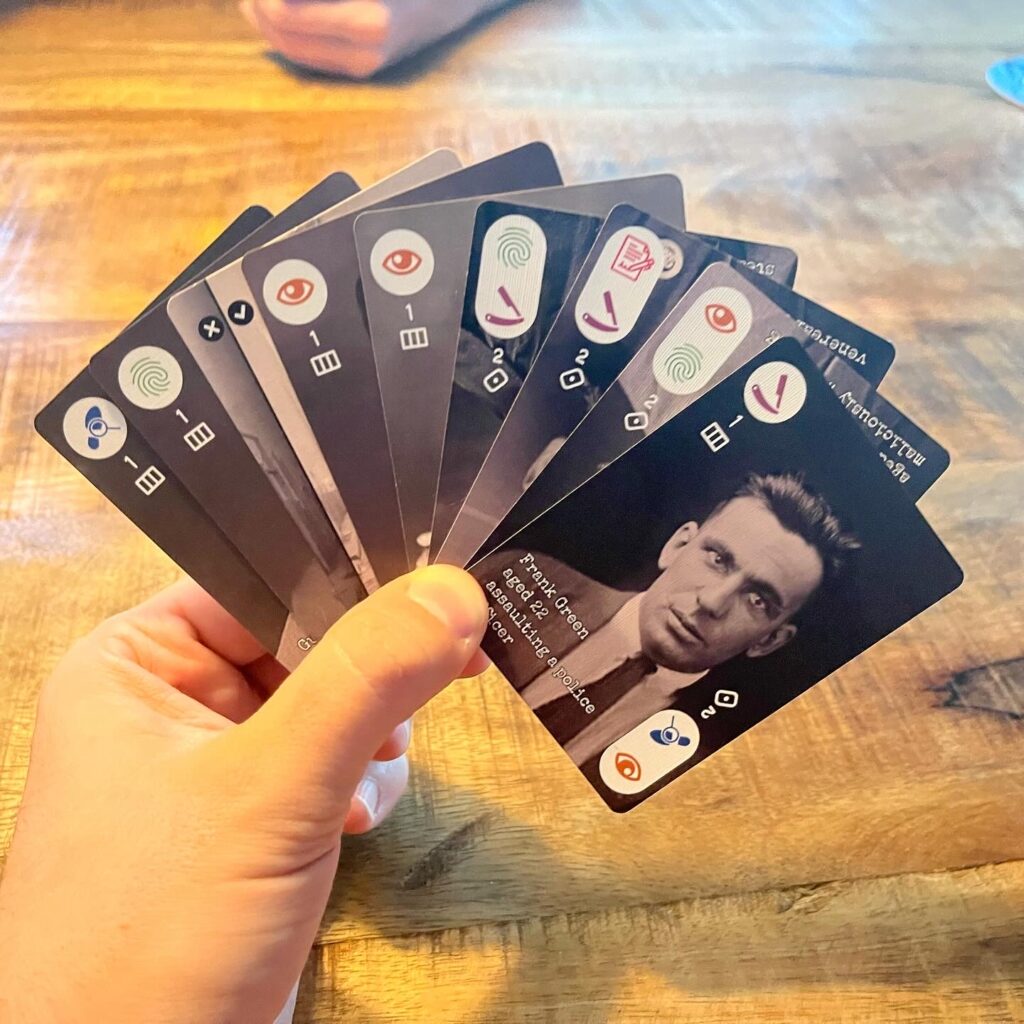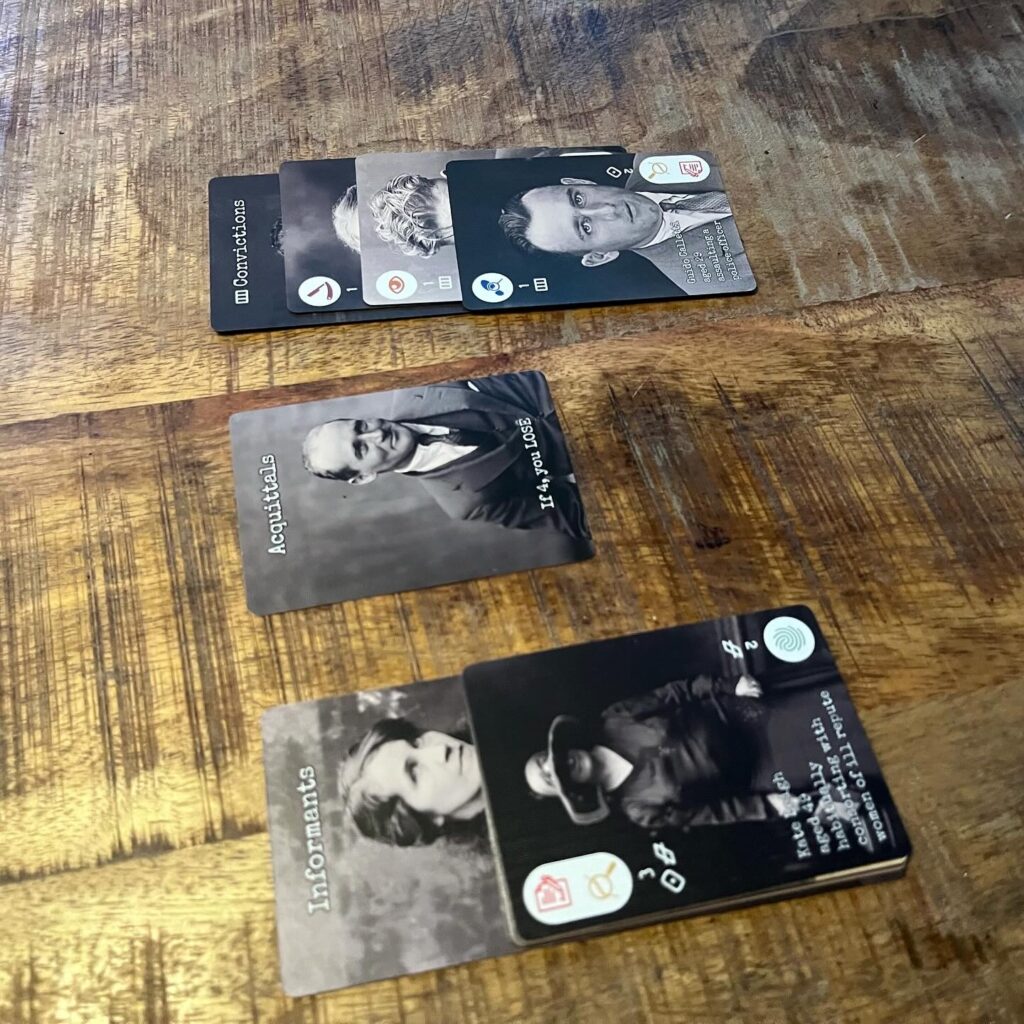Peaky Blinders too British? The Italian mafia too scary? The penoze too organized? And is Colonel Mustard the killer again? Then travel to the Sydney of yesteryear and catch as many crooks as no one has ever caught before in Fallen Angels. Will you be the ministering angel of justice or will you also end up in jail?
Background and goal
One of the first things you notice about Fallen Angels are the pictures on the cards. All the photos are so-called mugshots. Photos taken of suspects and convicts after their respective arrest or conviction. All photos used in Fallen Angels were taken in Sydney, Australia in the 1920s. The former “prison colony” proved in some ways to be a hotbed for crime and organized crime. In addition to the game rules, Fallen Angels also includes a small booklet with historical background of the photographs used. An interesting bonus.
Gameplay
Fallen Angels is a cooperative deduction game. Thus, players will have to deduce to achieve a successful conviction. What do we mean by deduce? Players must figure out, based on limited information provided by other players with hints, what pieces of evidence or pieces of evidence are needed to successfully suspect and charge a suspect. Other deduction games you may be familiar with: Cluedo or Awkward Guests. Fallen Angels, however, is played only with a small deck of cards used ingeniously.

Each suspect card is double-sided and each side has two halves. Each half contains either one or two of six possible evidence icons. If one half of a side contains two symbols, the opposite half on the other side of the card contains only one symbol. Players must guess what is depicted on the opposite side. If they guess the correct symbol they receive a reward. They may turn or flip the card or convict the suspect. If players collectively convict enough suspects, the game is won, but if players make a mistake, the suspect is acquitted and if there are too many acquittals, players have lost.
At the beginning of the game, depending on the difficulty level chosen and depending on the number of players, the cards in the deck are shuffled, turned and dealt. With three or more players, there is an informant who can offer additional hints (an extra pile of cards with symbols). With two players, there is and fictitious third detective to play and help.


When it is their turn, one player chooses a card and the other players rank the cards they have in hand to indicate which of their own cards have the icons (possibly) they can see on the back of that card. The player must then deduce which icon or icons are on the back of their own card. In doing so, of course, players must keep in mind that what they see in other players’ hands is not exactly what those players themselves can see.
Verdict
Fallen Angels is a clever game that makes you crack your brain even as it is explained, because the game concept is very innovative. Once you have played a round, however, the deduction feels like second nature. Before you know it, players are instructing and deducing to collectively tweet enough convictions. For experienced fans of deduction games, the easiest difficulty may be a little too easy, but certainly for the novice deduction player, Fallen Angels has a lot to offer in a small package.




